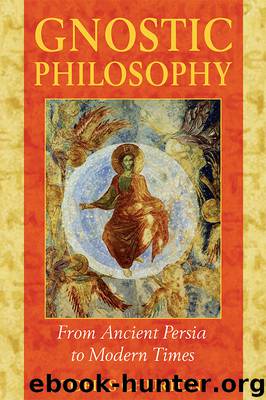Gnostic Philosophy by Tobias Churton

Author:Tobias Churton [Tobias Churton]
Language: eng
Format: epub
Publisher: Inner Traditions / Bear & Company
Published: 2011-04-19T16:00:00+00:00
In fact, the first known mention of a lodge at Kilwinning comes from the late-sixteenth-century Schaw Statutes (issued on December 27, 1598). William Schaw, appointed Master of Works by James VI of Scotland in 1583, had jurisdiction over Scottish Masonic practice. According to D. Murray Lyon’s History of the Lodge of Edinburgh, the regulations confined lodge membership to those who had been tested and who had submitted an essay; charity to brother Masons was required as well as obedience to an elected warden. No master was to work with “cowans,” or unqualified Masons.42
There was argument about the rules necessitating a second meeting, held on St. John’s Day at Holyrood Palace. To this meeting came a commissioner from Kilwinning, begging to know his lodge’s status, as it had not been mentioned in the statutes. This omission was rectified in the second set of statutes. Apprentices and craftsmen would be admitted only in the church at Kilwinning; the warden and deacon of Kilwinning should take the oaths of craftsmen. Furthermore, Schaw instructed all “maister massounis” to abide by all statutes made by Kilwinning lodge’s predecessors. Wardens should take “tryall of the art of the art of memorie and science thairof.” Kilwinning was nonetheless instructed to accept second place to the Lodge of Edinburgh, the principal lodge of Scotland.
In November 1736, the founding of the Grand Lodge of Scotland again raised the issue of Kilwinning’s status. Since Kilwinning’s minutes were unavailable before 1642, Edinburgh again achieved primacy—a conclusion unwelcome to the brethren of Kilwinning, who seceded from the Grand Lodge in 1743. The lodge would issue charters from their autonomous status to establish other lodges bearing the name, a name jealously regarded, as one might expect. There would be no reconciliation on the issue until 1806, when a happy compromise was reached. From that time on, Kilwinning received the honorary Number 0, to which members today add the rubric: “Mother Lodge of Scotland.”
It is clear that Kilwinning’s lodge predated Schaw’s statutes. However, written evidence is absent, which of course fuels the mystery. Schaw’s statutes demanded all lodges employ notaries for making of records—an innovation that explains why evidence is unavailable prior to that time. Furthermore, Kilwinning Abbey’s chartulary, which might have assisted us in accounting for the lodge’s origins, was lost some time after the Scottish Reformation in the 1560s.
The abbey itself was begun in about 1140 after a group of Benedictine monks from Normandy encountered remnants of Culdees (members of the ancient Celtic Church) at Kilwinning. The abbey gained in wealth and prestige throughout the thirteenth century. It was the abbot of Kilwinning, Bernard de Linton, who, as King Robert Bruce’s chancellor (since 1309), recorded Robert’s heroic speech before the Battle of Bannockburn in 1314. We do not know if a lodge of Masons continued after the abbey was substantially finished. There was certainly a lodge there after the abbey’s destruction by the reformer John Knox’s follower, the fifth earl of Glencairn. Indeed, it may have been the effects of Reformation demolition that led to Schaw’s statutes in 1598.
Download
This site does not store any files on its server. We only index and link to content provided by other sites. Please contact the content providers to delete copyright contents if any and email us, we'll remove relevant links or contents immediately.
| Buddhism | Christianity |
| Ethnic & Tribal | General |
| Hinduism | Islam |
| Judaism | New Age, Mythology & Occult |
| Religion, Politics & State |
Cecilia; Or, Memoirs of an Heiress — Volume 1 by Fanny Burney(32558)
Cecilia; Or, Memoirs of an Heiress — Volume 2 by Fanny Burney(31956)
Cecilia; Or, Memoirs of an Heiress — Volume 3 by Fanny Burney(31942)
The Secret History by Donna Tartt(19092)
Sapiens: A Brief History of Humankind by Yuval Noah Harari(14391)
Leonardo da Vinci by Walter Isaacson(13337)
The Radium Girls by Kate Moore(12030)
Sapiens by Yuval Noah Harari(5372)
How Democracies Die by Steven Levitsky & Daniel Ziblatt(5219)
The Wind in My Hair by Masih Alinejad(5095)
Homo Deus: A Brief History of Tomorrow by Yuval Noah Harari(4920)
Endurance: Shackleton's Incredible Voyage by Alfred Lansing(4784)
Man's Search for Meaning by Viktor Frankl(4607)
The Silk Roads by Peter Frankopan(4535)
Millionaire: The Philanderer, Gambler, and Duelist Who Invented Modern Finance by Janet Gleeson(4479)
The Rape of Nanking by Iris Chang(4215)
Joan of Arc by Mary Gordon(4115)
The Motorcycle Diaries by Ernesto Che Guevara(4103)
Stalin by Stephen Kotkin(3969)
